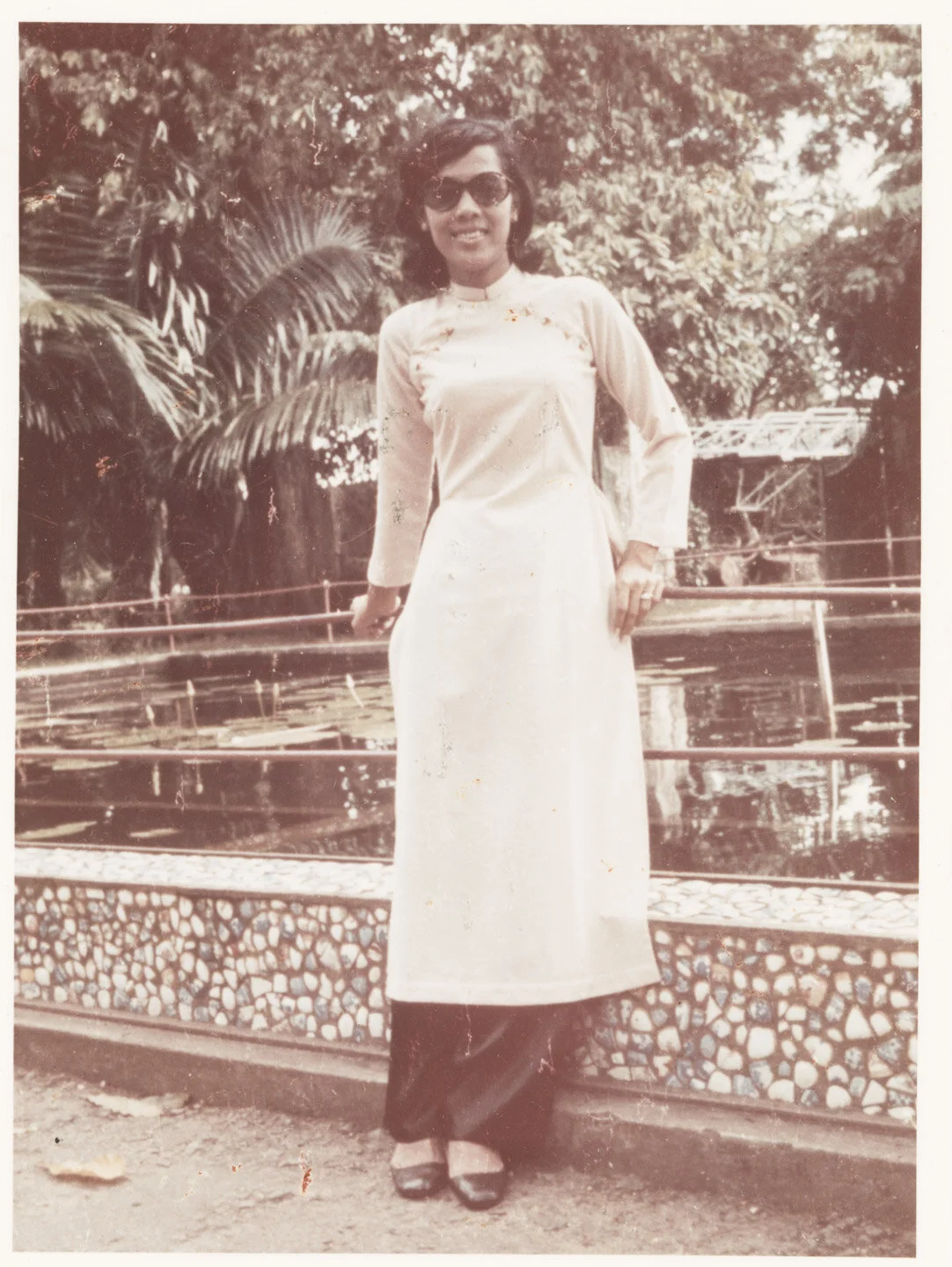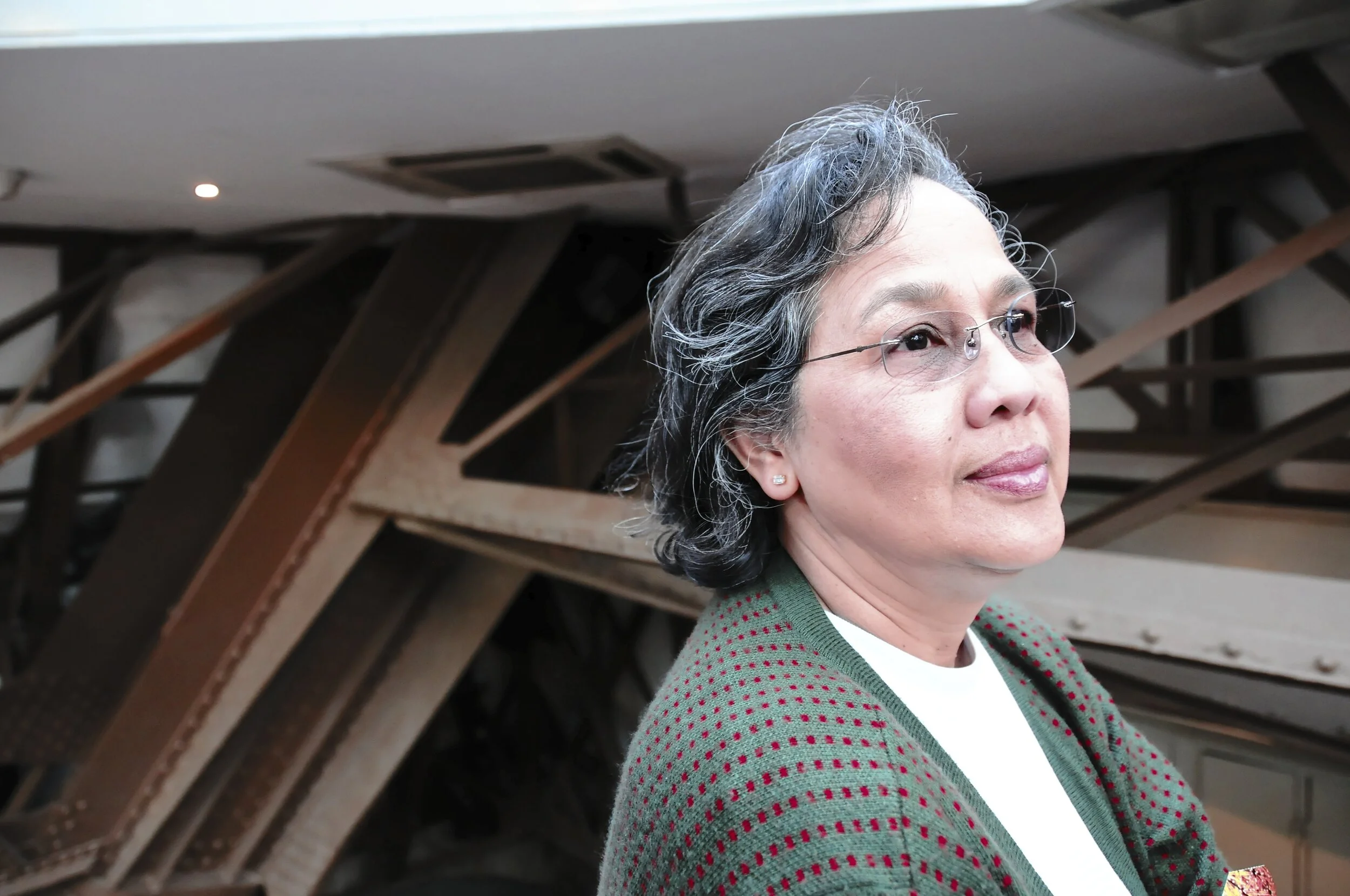In Memoriam
February 18, 1947 – April 30, 2020
Bivy Zeittonne peacefully passed away on April 30, 2020 with her husband Thang and her son Thomas at her bedside.
It was her last flight — quite fitting since she was up in the air 45 years to that day, leading six of her younger siblings to freedom.
Bivy was an indomitable and fearless matriarch who put her family before everything else. This is her story.





Her early years
Bivy was the second oldest of ten siblings, born on Feb. 18, 1947 to her mother Quach Thi Ten and father Amidou Soultane in Bac Lieu, Vietnam. Her father owned several businesses that faltered partially due to the Communist Viet Cong uprisings in the South Vietnamese countryside, which forced them to move to Soc Trang. During most of her teenage years, Bivy served as the main bookkeeper for her father’s businesses and properties.
After high school, Bivy found work at places such as an art store specializing in lacquerware. Her big break came through a relative who referred her to a job working with the United States government in South Vietnam. The job got her foot in the door at a USAID training school, where she was placed at Air America, an airline that was owned and operated by the Central Intelligence Agency. This opportunity would not only transform her life, but the life of her entire family.






The boom — and the Fall
Bivy’s position at Air America in Can Tho put her in frequent collaboration with State Department staff as well as officers of the US military and CIA. But the best part of working there was that it made her the breadwinner for her family by the time she was 19 years old. This allowed her parents to live a leisurely life and send her siblings to school.
It all fell apart seven years later.
By April 1975, the Communist North Vietnamese Army (NVA) had captured many South Vietnamese cities. In the days leading up to April 30, 1975, Bivy arranged to have family members throughout the Mekong River Delta in places like Can Tho, Soc Trang, and Ca Mau make the trip.
Some resisted. Some dawdled. In the end, she and six of her siblings ages 8–21 flew out of Can Tho in a small PC-6 Porter airplane towards Tan Son Nhut Air Base in Saigon, the capital city of the American-backed South Vietnamese regime. Shortly after they arrived, the North Vietnamese Army was already advancing on Saigon. They spent the night in an aircraft hangar surrounded by sandbags, constantly being rocked by mortar shells from the NVA and Viet Cong forces.
So many things could have gone wrong.
At Tan Son Nhut, a US official helping with ticketing passengers onto airplanes didn’t allow one of Bivy’s sisters to continue because she was five months past the cutoff age of 21.
“We leave together, or we die together,” Bivy defiantly said.
By dawn, they could see the destruction — fire, smoke and debris took the place of many hangars and airplanes that sat on the field the day before.
They boarded a C-47 cargo plane — some needed to run to be pulled into the airplane. They barreled down the runway past vehicles filled with people hoping for the same ticket for freedom. They could see other planes being shot down as their plane climbed into the skies.
















Finding a familiar face
It took several days for Bivy and her siblings to make the journey by air. From Saigon, they stopped in Con Son Islands, Brunei, Philippines, Guam, and Hawaii.
They landed at Camp Pendleton in San Diego, the very first wave of refugees that came as Saigon was “liberated” and unified into a singular Communist regime.
They stayed in Camp Pendleton for a few months, where Bivy not only resumed her role as a family breadwinner while working for Operation New Arrivals, but also as a mother to her younger siblings. There, she ran into Ngo Cong Thang, a classmate that she knew at the USAID training school.
As the only other acquaintance at the camp, Thang was the only person who earned her trust. He quickly helped tend to Zeittonne’s siblings as a father figure. Zeittonne ran into a familiar face at Camp Pendleton who offered to sponsor her and her family in his home state of Nebraska.






Starting a life in America’s heartland
Photo from the Lincoln Evening Journal on July 23, 1975.
Bivy convinced Thang to accompany her and her siblings to Lincoln, the capital of the cornhusker state. The temperature on a good winter day would reach a high of 0ºF.
They married while working multiple jobs and sleeping in cots in the basement of a retired brigadier general of the Nebraska Air National Guard. Once a week, Bivy and Thang would wake up at 5 a.m. to do their laundry and pick up fresh runzas — a cabbage burger — from a local German bakery.
In their new home, Bivy didn’t forget about the family they left behind. Her mother, as well as two of her three remaining siblings left Vietnam to live with the Indian side of their family in Karaikal, Puducherry.
Bivy was able to use her pull with State Department staff to help bring her mother to the United States and rejoin the family. One of her brothers in India was able to move his family to Paris, and the other brother in India was able to rejoin the family in the early 1990s. Her eldest sister wanted to stay in Vietnam.






Home in the Pacific Northwest
With most of their family intact, several family members found work in the Seattle and Portland metro areas. So they moved again, and found home for good in the Pacific Northwest — saying farewell to frigid winters hello to forests, mountains and the ocean.
As Bivy’s siblings started to grow up and out of their home in the Seattle area, she continued to keep a close eye on them as they dealt with their own challenges. When she and Thang moved to the Portland area, they even hosted nieces and nephews.
After having their only child, Thomas, they put down their roots in Southeast Portland. Bivy spent five years at home, and was always busy. She baked, cooked, cleaned, sewed clothes, gardened, and preserved food from both their backyard garden and nearby orchards. Bivy loved the Pacific Northwest going on family trips to places like Crater Lake, camping on the Oregon Coast, and long road trips to San Francisco or Vancouver, BC.
Bivy also went back to school at Portland Community College to earn an Associate’s Degree and soon started working at Liberty Mutual, which turned into a 20-year career. During this time, she sponsored her remaining brother from India, who was finally approved to immigrate on the US. And when her mother passed in 1998, it was Bivy who assumed the role of the family elder at all gatherings.
She doted on her husband, son, and their family dog Zip. During her last weeks, she continuously spoke of having lived and accomplished a full life.
“We came here as a group of seven,” she said. “Now we are more than thirty strong.”
“Don’t cry. Be happy for me.”






















